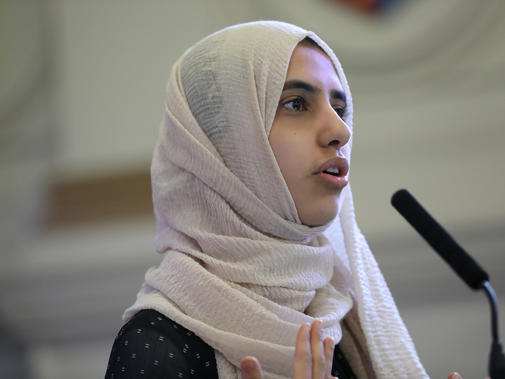This is a question that has been asked of medical students for many years.
Should those who have dedicated themselves to learning the art and the trade of medicine, those who are training to enter what is undoubtedly one of the most privileged and highly regarded professions there is, be free to show their political colours, to be activists, and to be vocal with their thoughts and feelings about how the world should be?
For us, being political as medical students and later as doctors is so important because we have a duty to advocate for the patients who are already at a disadvantage before they enter the hospital.
It cannot be argued that impartiality in healthcare is a reason to keep politics out of it because that assumes an equal level of access and outcome to these services that many groups in our society do not have.
COVID has only shone a spotlight on the reality of the disparity of health inequalities between different communities, from people of colour to the socioeconomically disadvantaged. Political action allows us as future doctors to advocate against the decisions in policy that lead to the overall worsening health outcomes for these groups.
In medical schools, there has historically been an atmosphere of obedience and an air of deference to the profession. We know by now, that many of the old traditions did more harm than good. That medicine’s racism, misogyny, homophobia and transphobia actively harms patients.
We are taught to treat people of different races differently based on archaic ‘race science’ (for example in the calculation of eGFR), while BAME people are ignored when it comes to teaching about skin conditions and in the broad stroke use of BMI across ethnic groups. Now, more than ever, we understand the profound negative effects that our silence on issues of social harm can have.
Maintaining integrity and remaining a steadfast professional both in practice and in life does not also imply impartiality.
For doctors and medical students who are properly informed about the world around them, it is virtually impossible not to be outraged at the injustices, corruption, cruelty and toxic ideology that surrounds us all.
So much of the illness we see stems from the socioeconomic conditions created by the way our society organises itself, often perpetuated by those who are chosen to lead it.
We know that so many people we are able to help will simply return to the same conditions that contributed to their illness in the first place, a seemingly endless cycle. Doctors and medical students are trained and encouraged to be advocates for our patients – there is simply no way that it is possible to truly do this while remaining apolitical.
We’re looking forward to meeting you at this year’s BMA medical students conference and discussing some of these pressing issues.
In the past, students have brought motions on anti-racist training, increased diversity in the curriculum, standing against charges for migrants and free period products for patients in all hospitals in the UK – all of which have led to the BMA taking a stance on lobbying institutional bodies on direct action to tackle these inequalities.
Though many of these students have not had much previous experience in policy writing, it has often been the simplest of motions that have made the most direct impact.
This year’s conference is a place for your opinions to be heard, to contribute to the collective voice of thousands of medical students from across the UK. It is a place for open, honest and powerful debate over some of the biggest issues of our time.
You’ll have the chance to network with your peers and learn from eminent guests through keynotes and practical workshops, and above all, you’ll have the chance to harness the power of a democratic organisation to make the change that you want to see in the world.
This year, for everyone’s safety, we’ll be holding the conference virtually, allowing for debate, networking and collaboration to flourish in a new and flexible format that is more accessible than ever before.
To find out how you can get the most from the conference, get in touch with your local BMA representatives. For information about who your local representatives are or any other questions about the conference if you didn’t get a seat this time but would like to in the future, contact the BMA
Khadija Meghrawi is chair of the Medical Students Conference and an intercalating medical student from Bristol, Callum George, a penultimate year medical student of the Scottish Graduate Entry Medicine programme and deputy chair of the Medical Students Conference and Marie-Claire Bradley is a fourth year medical student from Northern Ireland and member of agenda committee

